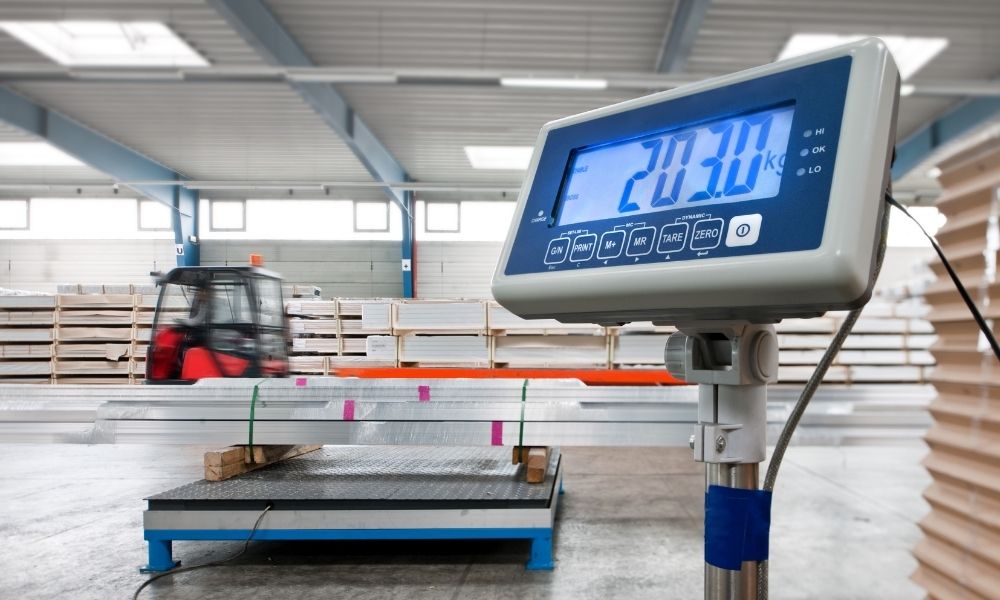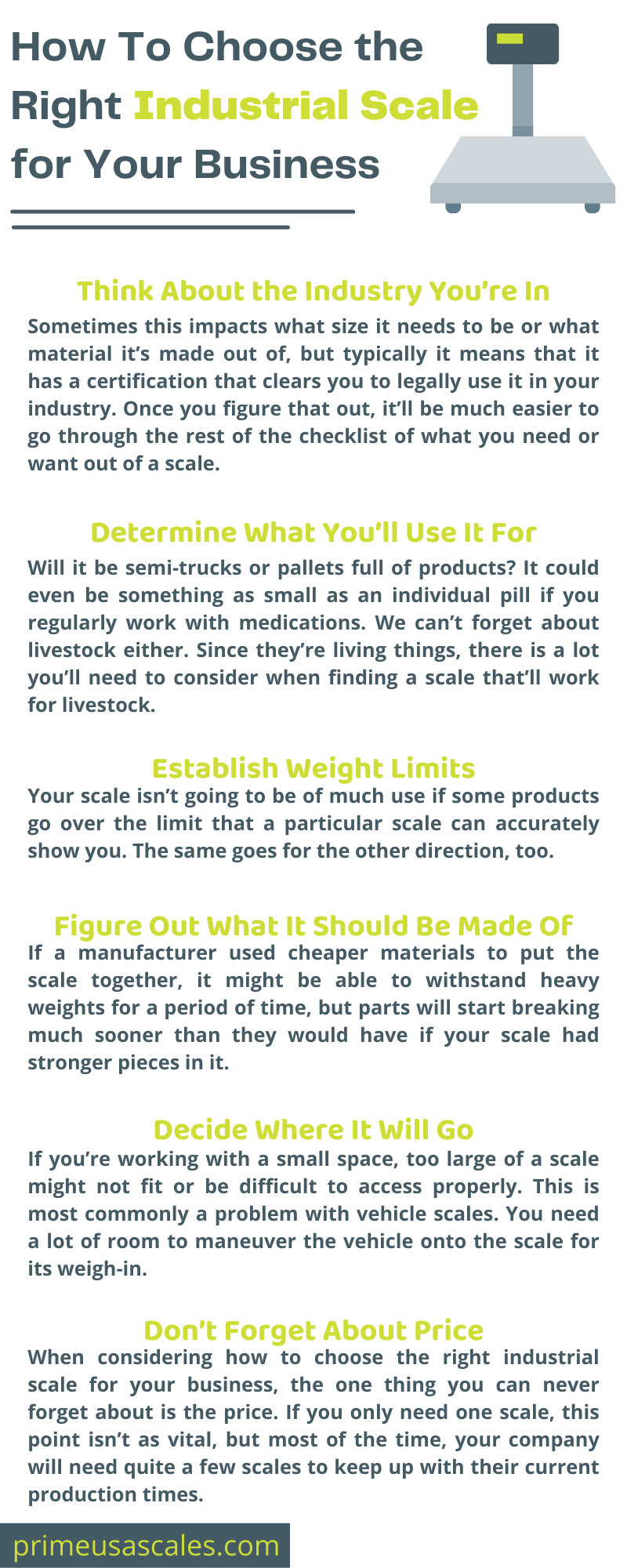
When dealing with large quantities of products, using scales to either keep track of quantity or how much it all weighs is essential. Whether you’ve only recently come across the need for them or it’s time to replace your outdated ones, there are certain aspects you need to consider before buying a scale. This blog post will help set you straight by going over how to choose the right industrial scale for your business.
Think About the Industry You’re In
Before you start looking at scales, you need to consider the industry you’re in. This will affect many of the following things in this list, but the part that’s most important to take note of is if you need to choose a scale that follows your industrial regulations.
Sometimes this impacts what size it needs to be or what material it’s made out of, but typically it means that it has a certification that clears you to legally use it in your industry. Once you figure that out, it’ll be much easier to go through the rest of the checklist of what you need or want out of a scale.
Determine What You’ll Use It For
The next important aspect to consider is what it is your company will use the scales on. Will it be semi-trucks or pallets full of products? It could even be something as small as an individual pill if you regularly work with medications. We can’t forget about livestock either. Since they’re living things, there is a lot you’ll need to consider when finding a scale that’ll work for livestock.
If you think your company will need your scales for multiple things, you will need to find some versatile ones or a few different kinds that you can use depending on the objects in question that need to get weighed.
Establish Weight Limits
Once you have an idea of the products you’ll be weighing, you need to look into possible extreme weights that they could be. Your scale isn’t going to be of much use if some products go over the limit that a particular scale can accurately show you. The same goes for the other direction, too. Scales also have a lower limit that they can’t determine the measurements of, so if you have lighter products, you’ll want to keep this in mind as well.
Figure Out What It Should Be Made Of
While the scale’s abilities are a crucial element to consider for excessive weights, so is what they’re actually made of. If a manufacturer used cheaper materials to put the scale together, it might be able to withstand heavy weights for a period of time, but parts will start breaking much sooner than they would have if your scale had stronger pieces in it.
Of course, types of materials have other advantages and disadvantages, too. For example, if you plan on placing your scale in a wet environment, you’ll want metals that won’t rust and break down over time. Any sort of corrosive liquids could ruin a perfectly good scale over time as well if you don’t get one made of the proper materials.
Decide Where It Will Go
Just like with any other machine or large piece of equipment, you’ll need to scope out where you’re going to put the scale before buying it. Not only does our wet environment example from the previous point apply here, but so does the size of the scale you end up buying. If you’re working with a small space, too large of a scale might not fit or be difficult to access properly. This is most commonly a problem with vehicle scales. You need a lot of room to maneuver the vehicle onto the scale for its weigh-in.
Consider Its Accuracy and Readability
Even if you work in an industry that doesn’t require any special certifications for accuracy, it’s still an aspect you’ll want to consider. Nobody wants a scale that was cheaply made and gives horrifically inaccurate numbers, but accuracy involves more than the readings simply being wrong. It also refers to the precision of the decimal place, or the scale’s readability.
Typically, most scales have a readability level of at least 0.1 lbs., but they can go as far as 0.0001 lbs. It all depends on the level of accuracy you need for the objects you weigh for your business. Most people think that more is always better, but if you just need average weights for your purposes, you don’t need to buy a scale with many decimal places in its readings.
Look Into Connectivity Options
In the old days, connectivity didn’t matter, but with the automation of data in the industrial sector, having a scale that can interconnect with all your other programs is a lifesaver. No longer will you manually have to keep track of all the individual items you’ve weighed that day. With a scale that connects to the internet, you can send all that data straight to your inventory programs for further processing. High-tech scales are the way of the future, so you might as well start looking into them now.
Don’t Forget About Price
When considering how to choose the right industrial scale for your business, the one thing you can never forget about is the price. If you only need one scale, this point isn’t as vital, but most of the time, your company will need quite a few scales to keep up with their current production times. This is when the overall cost really starts to jump up.
That’s why you should either look into cheaper options when possible or find a place that can get you a deal for buying in bulk. Of course, you don’t want to go so cheap that your scales lack the quality you require, which is why this is such a delicate balancing act that you’ll need to figure out.
Find a Place To Buy One
Now that you have all the details you need to find the perfect scale, you need a place to actually buy them from. That’s where Prime USA Scales comes into play! We have all the industrial scales for sale that you could ever need. Be sure to take the time to look through our entire online store to find the one that will work best for you.
